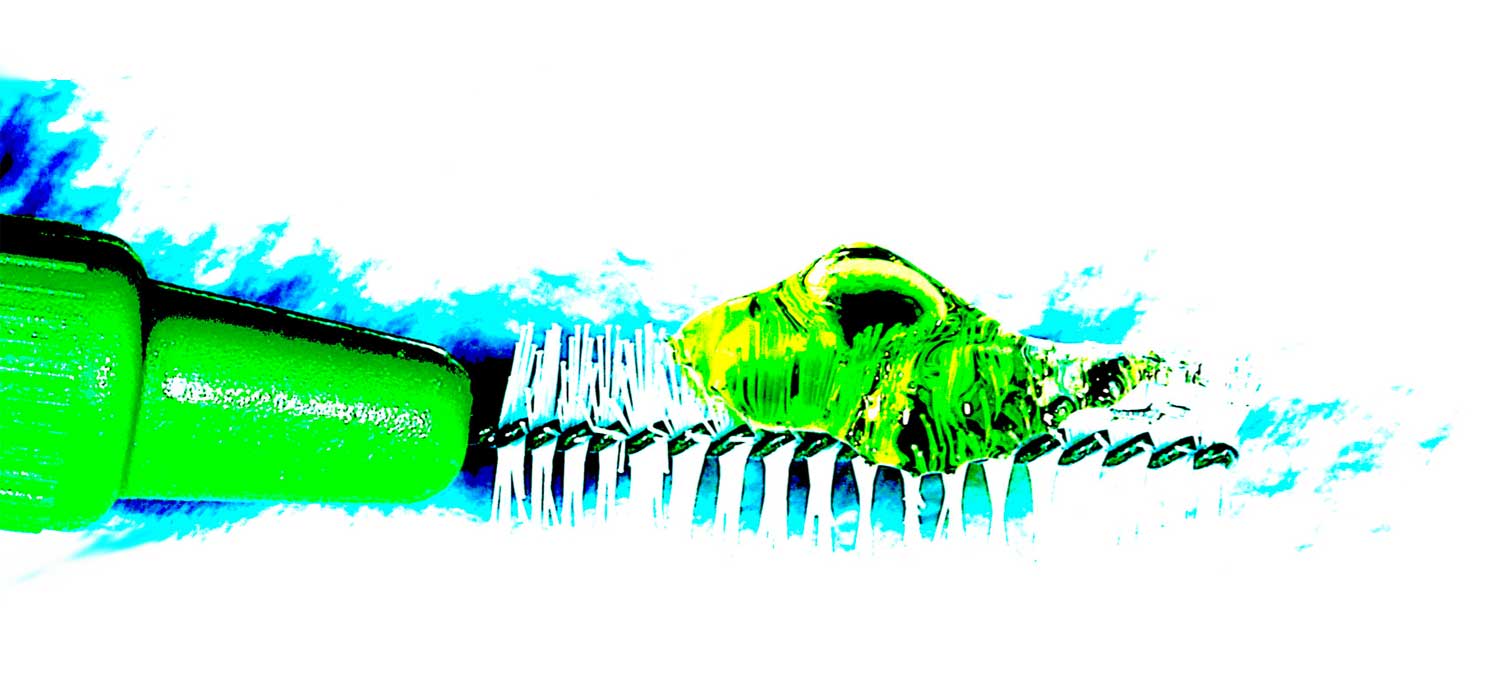Interdental cleaning – by itself or with an “extra” component?
PD Dr. Kristina Bertl, PhD MSc MBA
Every day we try to persuade our patients to brush their teeth twice a day and to brush the interdental areas at least once a day as well. However, we all know how particularly difficult it is to persuade our patients to brush the interdental areas, as this calls for a certain amount of skill on their part. This sometimes presents us with the following problem: even if patients are motivated, they may lack the dexterity or and/or skill to actually clean the interdental effectively with dental floss and/or interdental brushes. This in turn raises the legitimate question of whether it might be more effective in preventing plaque accumulation and the development of gingivitis to combine mechanical interdental cleaning with an “extra” chemical component?

A Brazilian research group (Langa et al. 2022) considered this very question recently and surveyed all the literature on this subject with the aim of comparing the following two methods of dental hygiene:
- Tooth brushing and mechanical interdental cleaning with a chemical additive compared with tooth brushing alone.
- Tooth brushing and mechanical interdental cleaning with a chemical additive compared with tooth brushing and mechanical interdental cleaning without a chemical additive.
Surprisingly enough, the research group could find only seven studies on this subject! Five studies tested the effectiveness of dental floss in combination with chlorhexidine and two studies tested the effectiveness of interdental brushes with chlorhexidine or cetylpyridinium chloride (CPC) respectively. The main parameters were plaque accumulation and the development of gingivitis. The authors drew the following conclusions based on these seven studies:
- Generally speaking, the evidence on this subject is unfortunately very sparse.
- Tooth brushing and mechanical interdental cleaning with a chemical additive showed significant clinical benefits compared with tooth brushing alone. Unfortunately, this comparison only proves what we already knew, namely that tooth brushing supplemented by interdental cleaning is more effective than tooth brushing alone.
- Contradictory results were obtained in a direct comparison of interdental cleaning with or without a chemical additive – in some cases there were significant benefits in using the chemical additive, but not in other cases.
What conclusions can we draw from these results for application in our practices? We cannot generalise by saying that every patient would benefit from the use of an “extra” chemical component – there is no evidence for this. The “extra” chemical component may, however, have a beneficial effect in certain cases at least, thus enabling it to be used specifically for certain “problem” patients.
Reference
- Gerson Pedro José Langa, Pedro Paulo de Almeida Dantas, Gloria Marcela Ramírez Lemus, Carlos Guillermo Benítez Silva, Jonathan Meza-Mauricio, Francisco Wilker Mustafa Gomes Muniz. Effectiveness of interdental cleaning devices with active substances: a systematic review. Clin Oral Investig. 2022 Mar;26(3):2253-2267. doi: 10.1007/s00784-021-04327-3.


comments